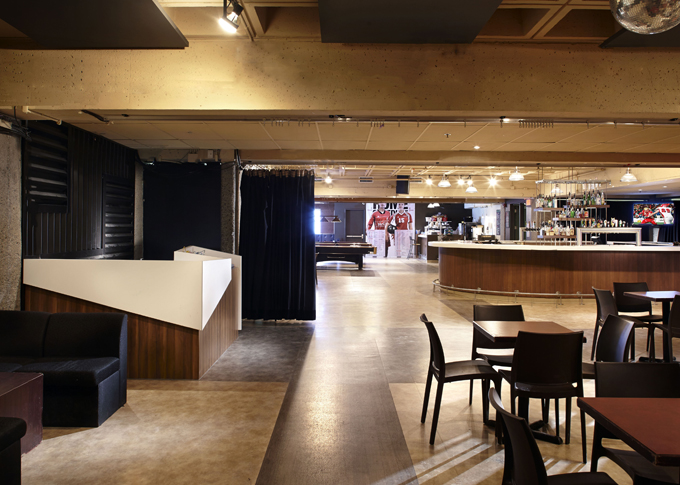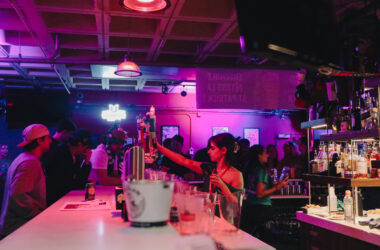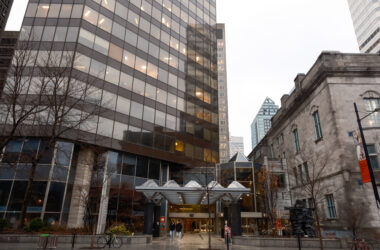McGill students with on-campus jobs are facing new struggles since the latest COVID-19 case surge driven by the Omicron variant. The provincial lockdown closed many non-essential sites of employment on campus, from Gerts Student Bar to the Athletics and Recreation facility, leaving some student employees without income. For students with essential jobs, on the other hand, the surge in cases has meant pressures to work over-time amid staffing shortages.
Student jobs deemed essential include research employees working in Tier 1 activities and select student service positions offering in-person support, such as the Peer Health Ambassadors at the Student Wellness Hub. Students with jobs in McGill’s residences are also still working in person.
Non-essential campus jobs have moved to a virtual setting or closed altogether, a move that has impacted students like Sabrina Ahmed, U2 Arts, who works as an office assistant at the currently closed Athletics and Recreations facility. Ahmed’s shifts scheduled throughout January were cancelled following the lockdown, impacting her ability to support herself financially.
“All the income from my on-campus job went towards paying my rent,” wrote Ahmed. “Since I am an international student, the tuition fees I am required to pay are quite high, so my job was a way for me to contribute to my living expenses and reduce the burden on my parents. Now with no income of my own, it has definitely put more pressure on my parents to pay for my living costs on top of already high tuition fees.”
In an email to the Tribune, McGill media relations officer Frédérique Mazerolle listed some of McGill’s channels of financial support, including one specifically created for those dealing with a loss of income stemming from lockdown—the In-Course Financial Aid program.
“Since the pandemic began, the Scholarships & Student Aid Office has received tremendous support from the University, donors and the provincial government to assist students with unexpected financial barriers,” wrote Mazerolle. “Nearly $6-million in one-time funding has been used to provide student bursaries for COVID-related situations—including remote learning tools, quarantine and lost or interrupted employment.”
For some students in permitted on-campus positions, the spike in COVID-19 cases has made their jobs more strenuous. According to Beatrice Robert, U2 Arts and a floor fellow in multiple residences, there have been pressing staff shortages due to coworkers getting sick, resulting in frequent overtime work.
“I worked 50 plus hours [and] had to be called within 12 hours of a shift, because [another employee] was down for 10 days,” Robert said. “It’s just really tiring. But at the same time you try to be really flexible, because you know, it’s hard for everyone. And if you are available, you do not want to say no.”
The lack of adequate personal protective equipment on campus is another issue facing essential student employees. Though McGill offers free procedural masks, there is no widespread access to N95s or KN95s, which are now deemed essential for proper protection against the Omicron variant.










